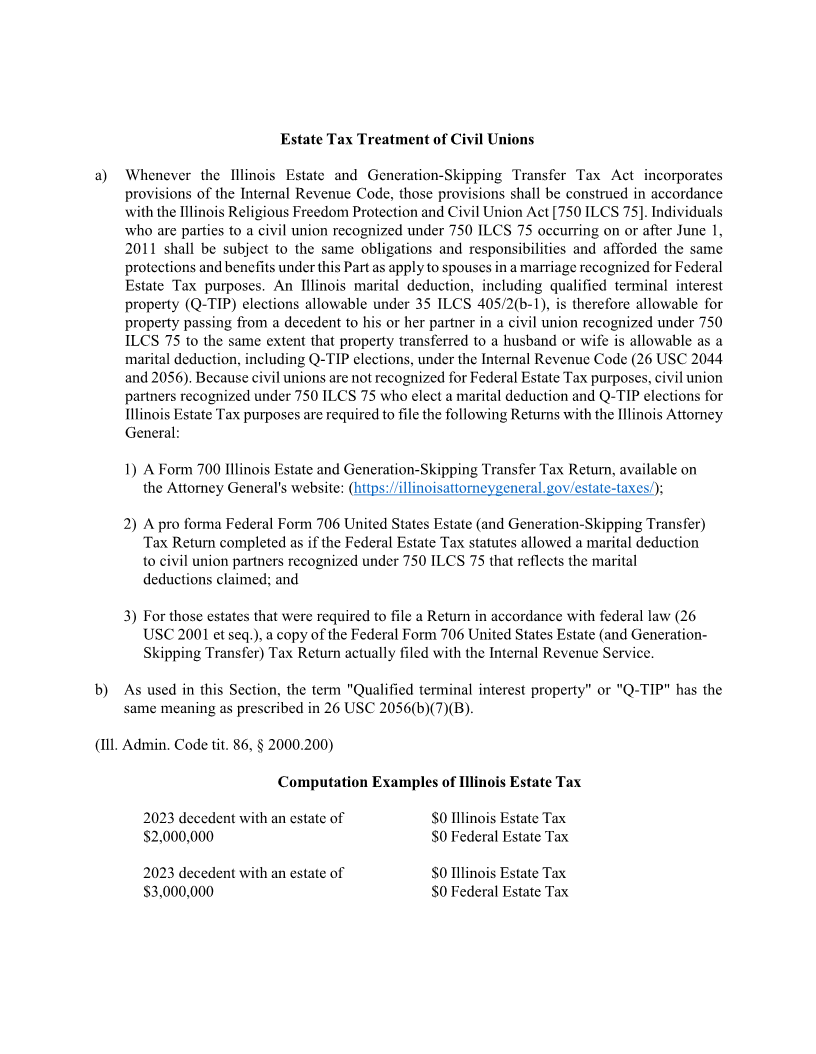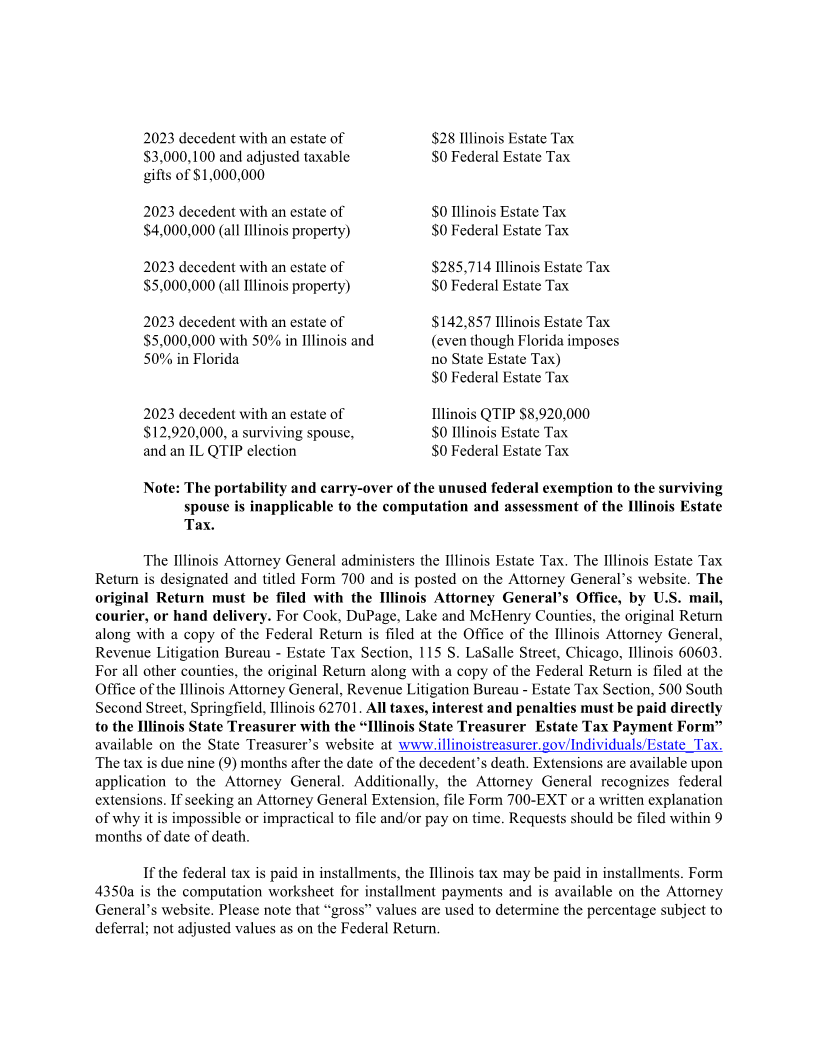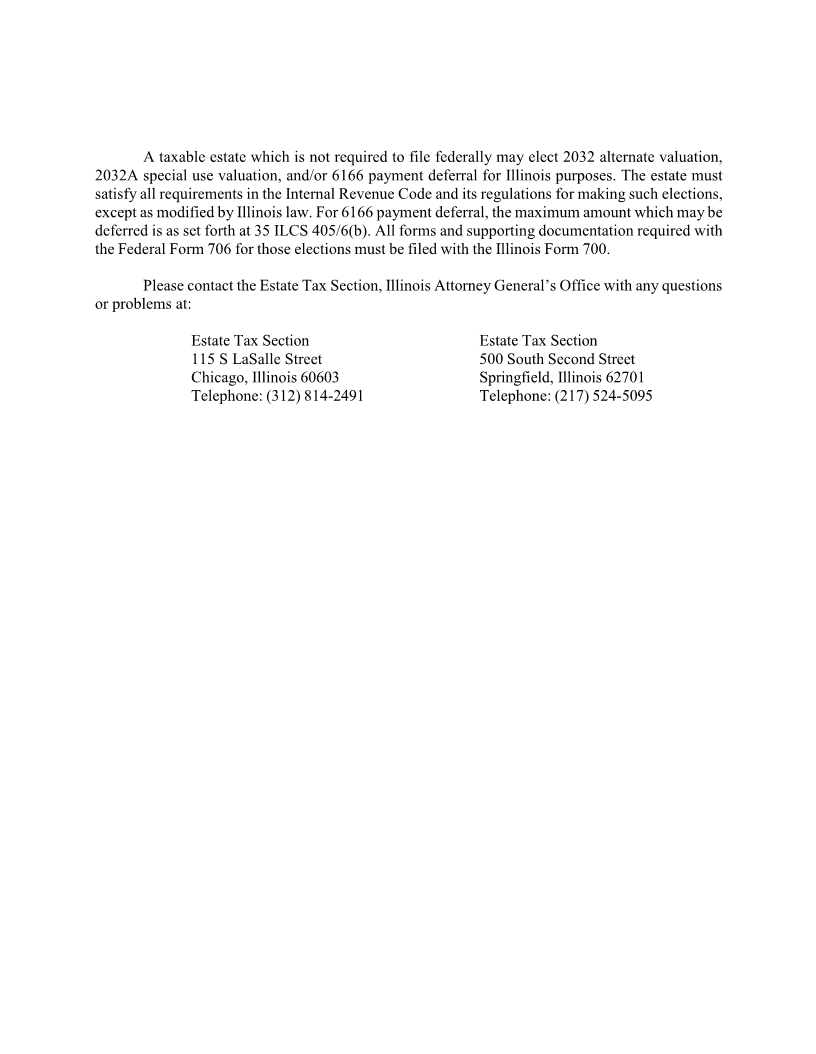
Enlarge image
2023
Important Notice Regarding Illinois Estate Tax and Fact Sheet
For decedents dying prior to 2023, see the Instruction Fact Sheets previously posted on the
Attorney General’s website covering the specific year of death.
For persons dying in 2023, the federal exemption for Federal Estate Tax purposes is
$12,920,000. The exclusion amount for Illinois Estate Tax purposes is $4,000,000. The exclusion
amount is a taxable threshold and not a credit against tax. If an estate’s gross value exceeds
$4,000,000 after inclusion of adjusted taxable gifts, an Illinois Form 700 must be filed, whether or
not a Federal Return is required by the Internal Revenue Service.The estate representative should
prepare and submit the Illinois Form 700 with a Federal Form 706, including all schedules,
appraisals, wills, trusts, attachments, etc. If an estate is not federally taxable and does not wish to
submit a Form 706, the information may be presented in an alternate format as long as all necessary
information is included. (See Ill. Admin. Code tit. 86, § 2000.110). The Illinois Estate Tax will be
determined using an interrelated calculation for 2023 decedents. The calculator at the Illinois
Attorney General’s website (www.illinoisattorneygeneral.gov) may be used for this computation.
To determine tax due, insert the amounts from Lines 3 and 5 of Schedule A or B, Form 700. Please
note that the calculator will not perform the computation unless amounts are entered into both
fields.
For both resident and non-resident decedents, a preliminary tax amount should be calculated
assuming all assets are located within Illinois. (Line 6, Schedule A or B, Form 700). The
apportioned tax can then be determined by multiplying that figure by the ratio of Illinois assets to
total assets.
Illinois QTIP Election (Qualified Terminable Interest Property)
For persons dying January 1, 2009 and after, the estate may make a QTIP election for
Illinois purposes in addition to any federal QTIP election. The Illinois QTIP must be elected on a
timely filed Illinois Return by checking the election box (pg. 2, box 4), inserting the dollar amount
of the QTIP election, and providing the social security number of the surviving spouse. A list of
Illinois QTIP property should be submitted with the Return. This may include trust property where
an undivided percentage is part of the QTIP, in which case the numeric percentage of trust property
included in the QTIP should be listed. An affidavit by the Trustee as to what is included in the
QTIP amount will suffice. The Illinois QTIP election will follow federal statutes and rules for
treatment of elected property passing to the surviving spouse and inclusion on the Return of the
surviving spouse, except as to the application of the Illinois Religious Freedom Protection and Civil
Union Act to parties of a civil union for Illinois Estate Tax purposes.


